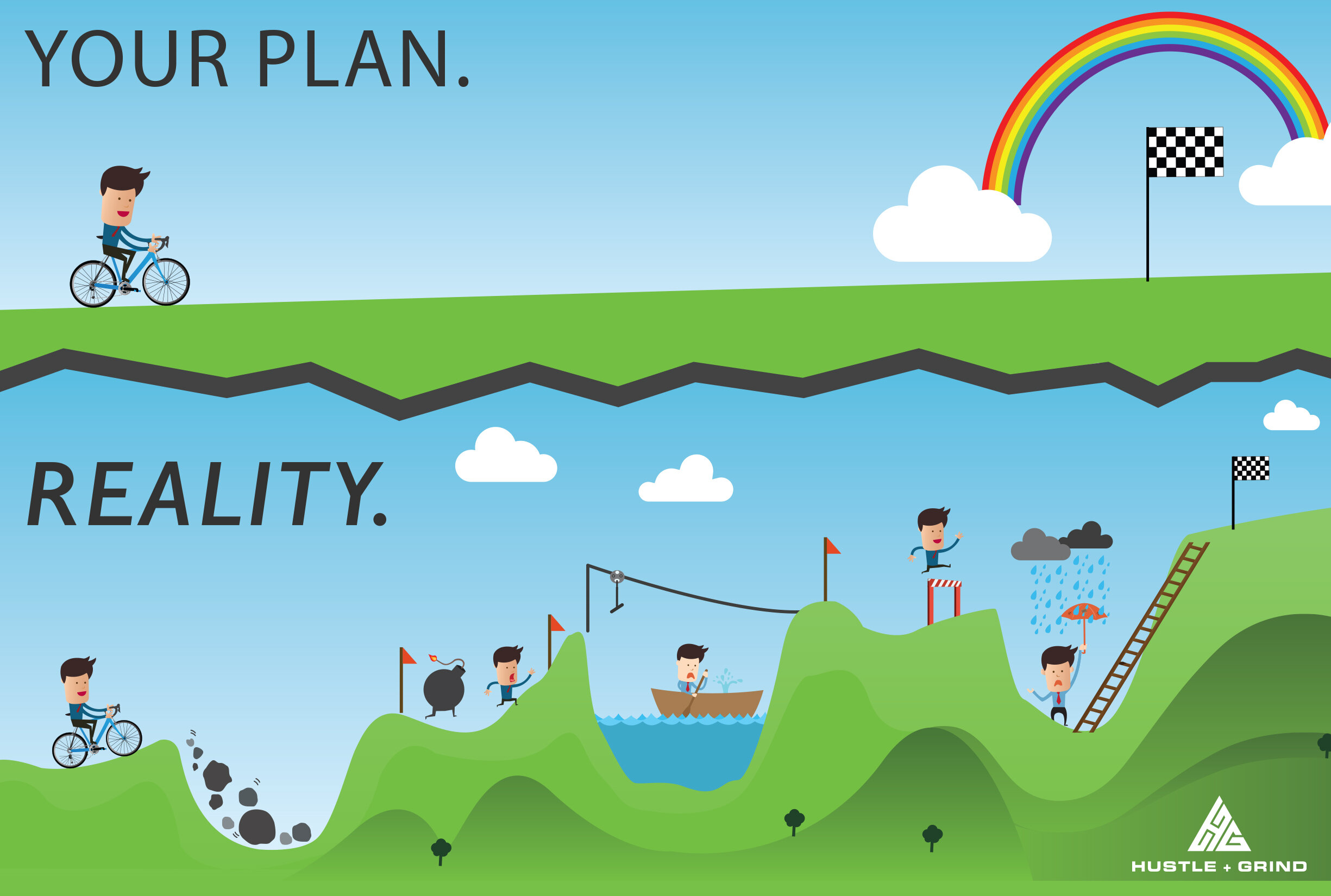10 Steps to a Successful Entrepreneurship Journey

If you have been having this idea floating in your mind now and you think it’s high time you take the step to entrepreneurship, you are at the right place. It goes without saying that you understand that entrepreneurship isn’t for the weak. The financing, the legal aspects, the grit, the perseverance, and even sometimes failure. That is why starting seems to be the hardest, yet it’s the first step to being your own boss. Here are 10 steps that can help you start well in your journey.
Where Do I Even Begin? (Finding Your Idea & Validation).
1. What Problem Do I Actually Care About Solving?
Leave “what can I sell” and first ask yourself: What frustrates me so much that I’d actually pay someone to fix it? What do I or people complain about? Or what issues does a product have that customers are complaining about. This is where entrepreneurial ideas lie.
For this, don’t chase trends just because everyone is doing it. If you’re not genuinely interested in organic dog treats, you’ll burn out the second things get tough. Look at your own life, your job, your hobbies. What’s the tiny, annoying friction point? You can address those problems because you have loved through it.
Afterall, people don’t buy products; they buy relief. Relief from frustration, inconvenience, or boredom. Find the problem, and you’ve found your business foundation.
How Do I Know If My Idea Won’t Fail? (The Validation Stage)
2. Can I Prove People Will Pay for This Before I Build It?
Now that you know your idea, it’s time to test if it will appeal to your prospective customers. This will require you to run some tests. For instance, If you want to build a platform that connects tutors with students, forget the platform for a second. Find a tutor and a student yourself, introduce them, manage the scheduling and payment manually, and take a small fee.
This will force you to interact with your customers, see their reactions, and find out what they actually care about. If you can get someone to pay you manually, then you are assured the business will also thrive online.
What’s the Smallest Step I Can Take Today?
3. What’s My Minimum Viable Product (MVP)?
Your MVP is the smallest, simplest version of your idea that still delivers the core value. Think of it like a skateboard before you build the car. It gets the user from A to B, but it’s not a polished sedan.
- The Key to an MVP: Don’t obsess over features. If you’re creating a course, your MVP might be a single, 30-minute webinar, not a 12-module masterpiece. If you’re selling custom t-shirts, your MVP is three designs, not thirty. Imperfect action beats perfect inaction every single time. Stop tweaking the logo and ship the thing already! Honestly, you can always improve it later.
4. Have I Identified My Single, Ideal Customer?
A lot of new founders say, “Everyone is my customer!” No. They aren’t. Everyone cannot be your customer. That is why you need to know your audience and focus on people that matter for your business.
Instead of “small businesses,” try: “Women-owned vintage clothing shops in the Midwest who are under $50k in annual revenue and use Instagram primarily.” That’s so specific you know exactly where to find them and what to say. You can’t connect with millions of people at once. You can, however, deeply understand and serve one person. Start there.
How Do I Actually Get Paid? (Money & Legal Stuff)
5. What About Funding?
You don’t always need a big investor or fancy pitch deck to start. Maybe you start with your savings. Or do a small crowdfunding campaign. Or offer early access to people who believe in what you’re doing. You can also talk to family and friends to invest in your business.
The key? Start lean. Spend where it truly counts, which is on things that move the business forward, not on things that just make it look good.
6. What’s the Simplest Legal Structure I Need?
Don’t overcomplicate this. For most solo entrepreneurs just starting out, a Sole Proprietorship is the default (and easiest) structure. As you start making significant money and want to protect your personal assets, you can talk to an accountant about forming a simple LLC (Limited Liability Company). Don’t wait until you’re making millions, but don’t spend a thousand dollars on legal fees before you’ve made your first sale, either. A simple Google search for “how to file an LLC in [Your State]” is usually the best first step.
How Will People Find Me? (Marketing & Distribution)
7. Where Does My Ideal Customer Actually Hang Out Online?
This is an extension of Step 4. If your target is the vintage shop owner, maybe they’re on Instagram and Etsy. If your target is an accountant, they’re probably on LinkedIn or reading specific industry newsletters. You don’t need to be everywhere; you need to be in the one place your customer is looking for a solution.
I see so many new entrepreneurs spending hours on TikTok when their customers are professional B2B folks on LinkedIn. You’re shouting into the wrong room! Pick one platform, master it, and be generous with your advice there.
8. Am I Giving Away Value for Free?
Content marketing isn’t just a buzzword; it’s the engine of modern business. Give away your best advice. Write a detailed blog post, create a short PDF checklist, or host a free mini-webinar.
- The Mindset Shift: You have to prove you’re an expert before someone will pay you. Giving away high-quality, actionable value builds trust and establishes your authority. When people see that your free stuff is amazing, they’ll happily pay for your paid stuff.
How Do I Handle The Inevitable Hard Days? (Mindset & Resilience)
9. How Am I Going to Handle Rejection and Failure?
It’s going to happen. You’ll launch a product that bombs. You’ll get a nasty email. You’ll have a month where sales are zero. You need a coping strategy now.
- The Entrepreneur’s Real Skill: Create a “Win File” that is a folder, physical or digital, where you save every compliment, every thank you note, every small victory. On the days you feel like quitting (and those days will come), open that file and remind yourself why you started. Treat every failure as data, not destiny. It’s just information on what not to do next time.
10. Am I Trading Perfection for Progress?
Perfectionism is just fear in disguise. You want a perfect website, a huge amount, and high social media followers. All these will only keep you from one thing; starting and yet your ideas just die there. Progress is your starting with the little, tiny, ugly, often embarrassing steps.
There is no perfect time and the only way to learn is by doing. Launch your messy MVP, get your first paying customer, and refine as you go. You’ll figure out the next step once you take this one.




